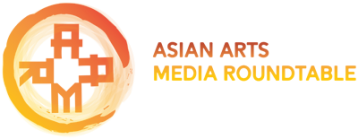Open Discussion on Next Steps (Summary)
LASALLE College of the Arts, F309
25 May 2019, 2.15pm – 3.45pm
Brief
The purpose of this session was to identify and discuss key issues about arts criticism and possible actionable next steps to move the roundtable forward.
Kathy Rowland posited two ideas:
- an open platform for peer knowledge and creation
- compiling key texts from each of the countries represented in the room.
To structure the discussions, Bilqis Hijjas suggested delegates may volunteer topics they are interested to discuss and other people can approach them to form break-out groups.
At 2:25pm, group discussions began and the roundtable reconvened for presentations at 3:15pm.
Mentorship and Training
Sharmilla Ganesan shared that it would be useful to have a database of potential mentors that people can reach out to on their own accord. Her idea was to create a fellowship programme to foster relationships between emerging writers and mentors. Delegates from different countries shared differing models of training that would work best depending on the resources available within their respective contexts – for example, Myanmar delegate Phoo Myat Thwe shared that due to the lack of mentors there, an intensive five-day workshop would be effective whereas Cambodian delegate Phina So felt a series of talks or discussions might work better in her country’s context.
Translation
Katrina Santiago shared that her group considered the language in which training would be conducted. Additionally, she noted a tendency to refer to Western texts and asked how we may integrate Western theory with our respective local contexts. Critics should choose what is worthy of translation. She pointed out that texts chosen for translation should not only be by foreign theorists, but also activists and other writers. Translating art historical contexts is also key, perhaps a more productive way to start the translation process, to better understand the contexts/conditions first.
She also pointed out a need to engage with Asian art practices within each country’s respective context. For example, in Indonesia, practitioners discuss Western art more than Indonesian or Asian art due to lack of knowledge of local practices. She highlighted the need for a platform for Roundtable delegates to share and translate texts for each other, immersing ourselves in non-Western practices/knowledge/languages.
Reading List
The discussion on sharing texts led to the point on establishing a reading list. Sadanand suggested the need to read more writing from each other, via a periodical reading list disseminated among the delegates. Kathy mentioned the idea of an annual anthology of best-of critical writing from each delegate’s affiliated publications.
Strengthening Critical Practice
In terms of strengthening critical practice, one suggestion was for critics to be critiqued – we start to critique each other’s works, and the desire to form an informal network of critics from this roundtable.
The desire not to repeat imperialist discursive processes brought up the idea of oral practice as a way to counter Western criticism.
Next Steps
The goal was to further the Roundtable discussion possibly through a website or platform to continue sharing information and texts from each country in multiple languages, including links to everyone’s existing platforms. A simpler possibility suggested was a Facebook group.
Mapping Ecosystems
A suggestion with regard to the mapping ecosystems session in Day 1 was that media organisations should be the entity to collate and map data.
Concluding Notes from Kathy Rowland
Kathy mentioned editorial collective Southeast of Now by Malaysian art historian Simon Soon, which gathers contemporary Southeast Asian texts on visual art; Asian Dramaturgs’ Network, which aspires to do the same for performing arts; and ArtsEquator’s reading group.
On the point of a periodical reading list, Kathy suggested using Google Drive, and possibly organising discussions via Skype. She noted that funding and sustainability are huge considerations.
On the point on oral practice, Kathy Rowland mentioned the Dhumba Wiiny Fire Talk facilitated by Yirramboi, an Australian First Nations arts festival organising team, an example of a new, decolonised practice of arts criticism.
The session closed at 3:45pm.
